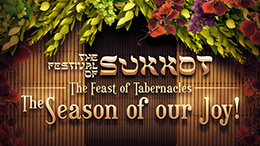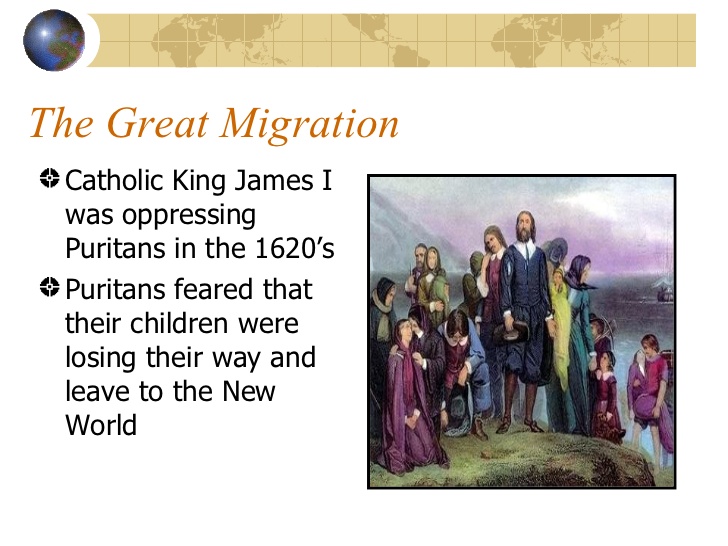Sukkotwith Information from

About SukkotSukkot is the third and final festival that commemorates the Jewish exodus from Egypt.The escape of Israel from Egypt is remembered at Passover, entering into a covenant with God at Mount Sinai is recalled at Shavuot, and sleeping in a temporary hut or booth (“sukkah” in Hebrew) while wandering in the wilderness is memorialized in the holiday of Sukkot. “Sukkot” is the plural form of Sukkah. Things we learn from Sukkot“Sukkot reminds us that the ultimate security is found not within the walls of our home but in the presence of God and one another.” [Rabbi Nina Beth Cardin,The Tapestry of Jewish Time.] [Rabbi Nina Beth Cardin,The Tapestry of Jewish Time.]As the Jews where let out of their darkness (the land of Egypt) by Moses, we also the non-Jewish and Jewish people alike are taken out of our land of darkness our sin by Yeshua into the promised land (the Heavenly kingdom). We live our life in our current world, a desolate sin filled world which is everywhere around us. The sukkot is a place of joy and a reminder that where ever we are even in a dark sinful world we can celebrate in the most humble abodes in the presence of God. Feast of Tabernacles / SukkothFeast of Tabernacles (Sukkoth or Booths) is celebrated Tishri 15 as outlined in Leviticus 23:33-43. This seven-day harvest festival, during which the Jewish people are told to live in “booths,” or temporary shelters, is a reminder to future generations of how the Israelites had also lived in booths when God delivered them out of Egypt.A number of Christians believe this is the date of Christ’s birth when He came to “tabernacle among us.” We should look forward expectantly to the Feast of Tabernacles, just as we look forward to the coming of the Messiah to bring His government, His Kingdom, and His laws (Mic. 4:1). Again the Lord spoke to Moses, saying, “Speak to the sons of Israel, saying, ‘On the fifteenth of this seventh month is the Feast of Booths for seven days to the Lord. On the first day is a holy convocation; you shall do no laborious work of any kind. For seven days you shall present an offering by fire to the Lord. On the eighth day you shall have a holy convocation and present an offering by fire to the Lord; it is an assembly. You shall do no laborious work. These are the appointed times of the Lord which you shall proclaim as holy convocations, to present offerings by fire to the Lord—burnt offerings and grain offerings, sacrifices and drink offerings, each day’s matter on its own day—besides those of the Sabbaths of the Lord, and besides your gifts and besides all your vows and freewill offerings, which you give to the Lord. On exactly the fifteenth day of the seventh month, when you have gathered in the crops of the land, you shall celebrate the feast of the Lord for seven days, with a rest on the first day and a rest on the eighth day. Now on the first day you shall take for yourselves the foliage of beautiful trees, palm branches and boughs of leafy trees and willows of the brook, and you shall rejoice before the Lord your God for seven days. You shall thus celebrate it as a feast to the Lord for seven days in the year. It shall be a perpetual statute throughout your generations; you shall celebrate it in the seventh month. You shall live in booths for seven days; all the native-born in Israel shall live in booths, so that your generations may know that I had the sons of Israel live in booths when I brought them out from the land of Egypt. I am the Lord your God’” (Leviticus 23:33-43). Five days after the Day of Atonement, the Feast of Booths (or Tabernacles) begins. The principle element of this celebration is “living in booths” for a week. The actual practice among the Jews consists of building a “hut” in the backyard or on the porch. They make the hut by tying branches together, because it is not to be nailed or constructed in any way that suggests permanence. In fact, the properly made hut will leak. This virtue permits the occupants to see the stars. Although the Jews do not actually live in these things, they will share meals in them and sometimes spend at least one night  camping out. I know of a Jewish family that sometimes takes a backpacking trip during this time. camping out. I know of a Jewish family that sometimes takes a backpacking trip during this time.I like to call the Feast of Tabernacles, “The holiday of the manifest presence of God.” Here is why. Leviticus says, “Israel shall live in booths, so that your generations may know that the sons of Israel lived in booths when I brought them out from the land of Egypt.” The hut lets children pretend to be Israelites in the wilderness. So, what was it like in those days? The twelve tribes had their camps on the north, south, east, and west. In the center stood the tabernacle. Over the tabernacle appeared the manifested presence of the Lord. The Lord said to Moses, “How long will this people spurn Me? And how long will they not believe in Me, despite all the signs which I have performed in their midst? I will smite them with pestilence and dispossess them, and I will make you into a nation greater and mightier than they. But Moses said to the Lord, “Then the Egyptians will hear of it, for by Your strength You brought up this people from their midst, and they will tell it to the inhabitants of this land. They have heard that You, O Lord, are in the midst of this people, for You, O Lord, are seen eye to eye, while Your cloud stands over them; and You go before them in a pillar of cloud by day and in a pillar of fire by night. Now if You slay this people as one man, then the nations who have heard of Your fame will say, ‘Because the Lord could not bring this people into the land which He promised them by oath, therefore He slaughtered them in the wilderness.’ But now, I pray, let the power of the Lord be great, just as You have declared, ‘The Lord is slow to anger and abundant in lovingkindness, forgiving iniquity and transgression; but He will by no means clear the guilty, visiting the iniquity of the fathers on the children to the third and the fourth generations.’ Pardon, I pray, the iniquity of this people according to the greatness of Your lovingkindness, just as You also have forgiven this people, from Egypt even until now.” So the Lord said, “I have pardoned them according to your word; but indeed, as I live, all the earth will be filled with the glory of the Lord” (Numbers 14:11-21). What an incredible sight to see everyday. “They have heard that You, O Lord, are in the midst of this people, for You, O Lord, are seen eye to eye, while Your cloud stands over them; and You go before them in a pillar of cloud by day and in a pillar of fire by night.” When the Lord wanted them to move, the pillars moved. When the Lord wanted them to stay, the pillars stayed. This is the tale parents can tell their children during the dinner meal in the hut. When the sky gets dark and you can gaze at the stars, the parents can tell their children how the universe manifests the presence of God. It is a good time to read Psalm 19. The Feast of Tabernacles also looks ahead to the Messianic Kingdom. It looks ahead to the time when the presence of God, through the reign of His son, is as manifest on the earth as it was in the days of the wilderness travels. In fact, according to Zechariah, the Feast of Tabernacles will be an international celebration during the Kingdom. And the Lord will be king over all the earth; in that day the Lord will be the only one, and His name the only one. … Then it will come about that any who are left of all the nations that went against Jerusalem will go up from year to year to worship the King, the Lord of hosts, and to celebrate the Feast of Booths. And it will be that whichever of the families of the earth does not go up to Jerusalem to worship the King, the Lord of hosts, there will be no rain on them. If the family of Egypt does not go up or enter, then no rain will fall on them; it will be the plague with which the Lord smites the nations who do not go up to celebrate the Feast of Booths. This will be the punishment of Egypt, and the punishment of all the nations who do not go up to celebrate the Feast of Booths (Zechariah 14:9, 16-19). It should be clear, by now, how the fall holidays of Leviticus track the Second Coming of Jesus Christ. The blowing of trumpets speak of the warnings and shaking on the earth to call all mankind to repent. The Day of Atonement speaks of the day that Jesus will physically return and the day that Israel as a nation will find salvation. The Feast of Tabernacles speaks of the Millennial Kingdom. The Puritans and SukkotWhen the Puritans came to America they were deeply immersed in their Hebrew heritage. Marvin Wilson explains in his book, Our Father Abraham (pp. 127-128):
The Reformers put great stress on sola scriptura (Scripture as the soul and final authority of the Christian). The consequent de-emphasis on tradition brought with it a return to the biblical roots. Accordingly, during the two centuries following the Reformation, several groups recognized the importance of once again emphasizing the Hebraic heritage of the Church. Among these people were the Puritans who founded Pilgrim America. The Puritans came to America deeply rooted in the Hebraic tradition. Most bore Hebrew names. The Pilgrim fathers considered themselves as the children of Israel fleeing “Egypt” (England), crossing the “Red Sea” (the Atlantic Ocean), and emerging from this “Exodus” to their own “promised land” (New England). The Pilgrims thought of themselves as all the children of Abraham and thus under the covenant of Abraham (Feingold n.d., 46).Thus, the seeds of religious liberty for the American Church did not come from New England leaders like Roger Williams and Anne Hutchinson as noble as they and others were. Rather, it came from the Hebrews themselves, whose sacred Writings inspired the Puritans. The Jewish New Testament Commentary says, “The Puritans, who took the Old Testament more seriously than most Christians, modeled the American holiday of Thanksgiving after Sukkoth” (Stern 1992). The Puritans wanted to abolish pagan religious ceremonies that had crept into the Roman Catholic church from Babylonianism. To rid the church of all pagan superstitions, the Puritans did away with all the calendar days. Christmas was outlawed in England in 1644 by an act of Parliament, for it was a lingering pagan element of the papal calendar, and they considered it disobedient to God’s Word (Deut. 12:30, 31; 1 John 5:18-21; 2 Cor. 6-14-7:1). By 1659, Massachusetts had passed a law fining anybody who celebrated Christmas. Under the influence of puritanical thought, America suppressed the celebration of Christmas well into the nineteenth century. By doing away with all the calendar days, the Puritans also threw out the baby (the Biblical holidays) with the bath water (pagan festivals such as Halloween, which is the ancient Samhain Festival of Death).
The festival of Sukkot has a prophetic dimension awaiting fulfillment. As the “Day of Ingathering” of the harvest, Sukkot prefigures the gathering together of the Jewish people in the days of the Messiah’s reign on earth (Isa. 27:12-13; Jer. 23:7-8). Indeed all of the nations of the earth that survived the Great Tribulation will come together to worship the LORD in Jerusalem during the Feast of Sukkot (Zech.14:16-17). Sukkot, therefore is a vision of olam haba, the world to come... |
| (c) EWCMI 2009-2026 | Terms of Use | ||
| All Donations, Seeds, and Tithes to Eagle Wings Charismatic Ministries International are tax deductible per the Internal Revenue Code 501(c)(3) Public Charity Status 170(b)(1)(A)(i) DLN 17053243329039 | |||
 |
|||







 Future Fulfillment
Future Fulfillment